You feel pushed. Manipulated. Exploited. Dominated. Coerced. Pressured. Bullied. Controlled.
The person in front of you has gone too far and has overstepped your personal boundaries. But you don’t know what to do; you feel weak and helpless. A quiet desperation rises inside of you. You feel like a fly stuck in a web.
What can be done?

Soul Work Compass Course:
Feeling lost, stuck, and trapped in repetitive cycles of pain? Discover your Soul's Compass to reclaim your purpose and find your path to freedom.
⭐️⭐️⭐️⭐️⭐️ "I have been a long-time subscriber to their website, and it’s one of my favorites by far ... It is rare to find this type of teacher." – Shar B.
If you struggle with energy loss and issues such as over-commitment, lack of assertiveness, and feeling exhausted all the time by those around you, keep reading. It’s time to draw a clear line and reclaim your personal power.
Table of contents
- What are Personal Boundaries?
- Why Are Personal Boundaries So Important?
- Sensitivity, Absorbing Energy, and the Power of Purification Rituals
- 18 Signs You Have Poor Personal Boundaries
- 9 Signs Someone is Violating Your Boundaries
- Why Do We Suffer From Poor Personal Boundaries?
- 5 Myths About Personal Boundaries That People Believe
- Boundaries and the Spiritual Awakening Journey – Why They’re Crucial
- 12 Benefits of Creating Strong Personal Boundaries
- 9 Ways to Create Personal Boundaries That People Don’t Ignore
- Final Words
What are Personal Boundaries?

Personal boundaries are the mental, emotional, and physical walls we create to protect ourselves from being used, manipulated, drained, or violated by others.
These limits help us to clearly distinguish who we are and what we need from other people and their needs.
Creating and maintaining personal boundaries is essential to cultivating physical, emotional, and psychological well-being.
Why Are Personal Boundaries So Important?

Boundaries are an essential way of creating and upholding a healthy self-image. When a person has strong personal boundaries, it communicates to the world that they exude healthy self-respect and self-worth.
Most importantly, healthy boundaries help us to create a safe container within ourselves where self-compassion and mindfulness can blossom. Hence, creating boundaries makes us feel fundamentally good and preserves our personal integrity.
But without personal boundaries, we run the risk of confusing our needs and wants with others, which leads to codependency.
Want to get LonerWolf at the top of your Google search results?
Codependency is a term that describes a toxic one-sided relationship where we derive all of our happiness from others. The reality is that it’s impossible to enjoy a healthy relationship without strong and clear boundaries.
Without personal boundaries, there is also the risk of experiencing heightened stress and feelings of hopelessness.
Overcommitting to everyone and everything tends to take a serious toll on your mental health, which can eventually lead to burnout – or worse, a nervous breakdown.
Finally, a lack of personal boundaries can result in feelings of being worthless, weak, or not good enough. In other words, our self-esteem becomes severely impacted, and we may struggle with issues such as chronic self-doubt, self-judgment, and self-loathing.
Not being able to voice our truth and communicate our needs in a clear way can be deeply distressing and demoralizing.
Sensitivity, Absorbing Energy, and the Power of Purification Rituals

Developing clearly defined boundaries is crucial in all dimensions of life, including on the spiritual and energetic levels.
If you’re an empath or highly sensitive person like me (or someone who deals with people’s issues directly, like a healer or therapist), it’s always a wise idea to ground and clear your energy field each day as a form of boundary-setting.
We walk through life picking up so much mental, emotional, and energetic debris from the interactions we have with our environments.
Setting the ritual of purifying yourself on all levels can help you find more spiritual clarity, calmness, and groundedness, especially if you’re gifted with high sensitivity.
Some purification ritual ideas include:
Would you like to save this?
Your information will never be shared.
- Taking a shower or bath and visualizing all the gunk of the day washing down the drain
- Walking barefoot on the earth and feeling the ground’s energy neutralizing your energy field
- Sitting in nature and engaging in some ecotherapy
- Deep and slow breathing from the bottom of your belly (via breathwork)
- Using incense or herbal smoke
- Self-applied reiki (I do this daily, as well as the first recommendation)
18 Signs You Have Poor Personal Boundaries

Pay attention to the following signs. How many can you relate to?
- You fail to speak up when you’re treated badly
- You give away too much of your time
- You agree with a person when you actually feel like disagreeing
- You say “yes” to a person when you want to say “no”
- You feel guilty for dedicating time to yourself
- You feel taken for granted by others
- You permit people to touch you when you feel uncomfortable or want them to stop
- You have toxic relationships (i.e., you’re always giving, and the other is always taking)
- You make too many grand sacrifices for others at your own expense
- You are passive-aggressive and might have manipulative tendencies (as a way of trying to regain your lost power)
- You constantly feel like the victim
- You feel like you have to “earn” respect by being nice
- You over-share details about your life with others
- You feel guilty when others aren’t happy (as if you’re solely responsible)
- You are what other people want/need you to be, and not who YOU need to be
- You’re out of touch with your needs
- You attract people who try to control or dominate you
- You have chronic fear about what others think of you
Pause to consider which one of these points caught your eye and tugged at your awareness most strongly. Then, take a moment to place a hand over your heart and send yourself some understanding and kindness.
Having poor boundaries is a frustrating and painful experience, and you’re certainly not alone in experiencing it.
9 Signs Someone is Violating Your Boundaries
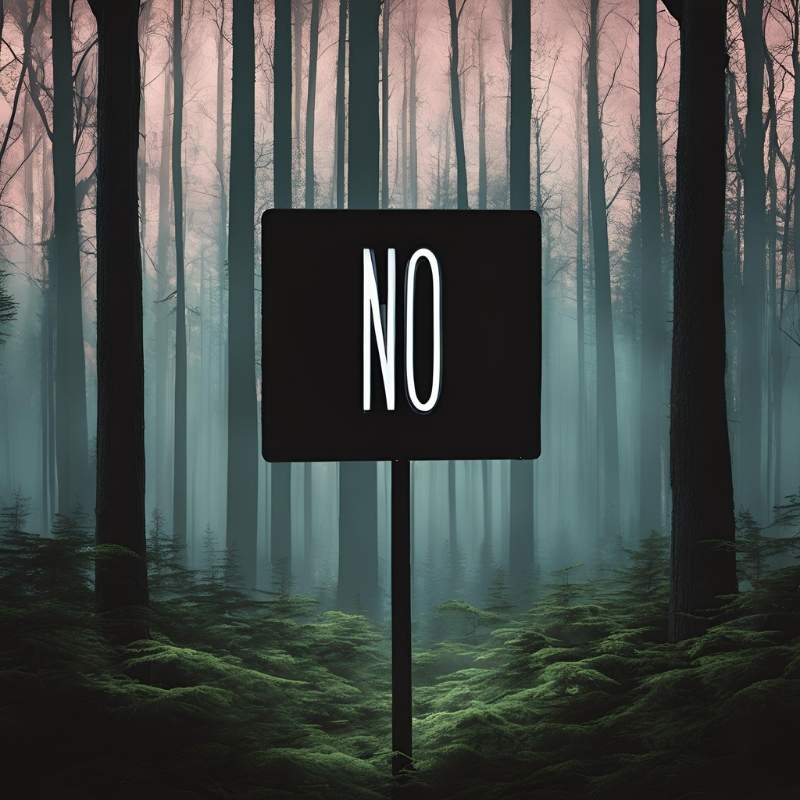
Pay attention to these red flags of having your personal boundaries violated:
- You feel the need to defend your boundaries (because the other person is resistant to you setting them for some reason).
- Your “no” isn’t being respected, and the person keeps doing the behavior that causes you to feel threatened or uncomfortable.
- Your personal space is being violated, and the person is touching you or standing too close to you in a way that makes you feel gross or unnerved.
- You aren’t being listened to, and you keep getting spoken over or ignored.
- You’re experiencing emotional abuse, and the other person mocks, denigrates, or manipulates you.
- You’re being pressured to act in a certain way or do something that you don’t want to do.
- You’re being controlled and coerced to play a certain role.
- You feel as though you can’t negotiate with the person because it’s ‘their way or the highway.’
- You feel disturbed, exhausted, or on-edge after being around the person for reasons you can’t quite pinpoint.
You’ll find that sometimes, some people unintentionally violate your boundaries (e.g., showing up unannounced at your house as a ‘surprise visit’).
Other times – like what I’ve experienced a lot due to life circumstances – you’ll deal with people who have a dark triad personality (narcissistic, machiavellian, or psychopathic personalities) who seem to get pleasure out of overstepping your boundaries as a way of ‘testing’ you.
Remember that you are a sovereign being, and your boundaries are sacred. They’re your protective bubble to keep, maintain, and assert at will.
Why Do We Suffer From Poor Personal Boundaries?

Before going too deeply into the understandable urge to blame or shame yourself in some way for having poor boundaries, I want you to understand that it wasn’t your fault, but it is your responsibility to develop strong boundaries now. So take a moment to feel some compassion, or at least sympathy, for yourself.
As children, we had no control over what our parents, teachers, and the adults around us taught us.
As a result, most people with absent or weak personal boundaries as adults struggle to feel confident enough to draw a line and adequately tend to their needs.
The codependent dynamics within our families, as well as being taught that “love equals what we do, not who we are,” contribute significantly to this lack of internal solidity.
As children, the first role models we had of “acceptable” behavior were our parents and family members. So pause to reflect here: what messages did your mother, father, caretakers, siblings, or other adults send to you growing up?
Were you only given love when you pretended to be who your parents or caretakers wanted you to be?
Were you only rewarded when you went out of the way to sacrifice your needs and desires in favor of someone else’s?
Were you punished for saying “no” or speaking up?
Did you feel obliged to emotionally “take care” of an adult, perhaps a parent?
These were all signs that you were taught that it was “good” to lack personal boundaries.
5 Myths About Personal Boundaries That People Believe
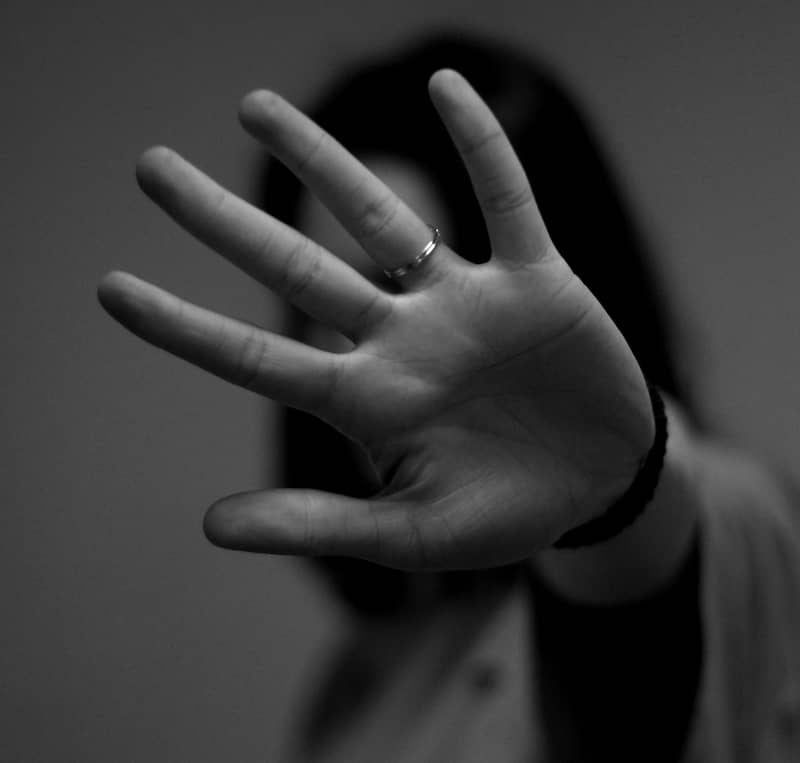
If you struggle with setting clear boundaries, you might carry a number of mistaken beliefs that you were conditioned to believe.
Here are some myths to be aware of:
- “Having personal boundaries is selfish.” – This myth is probably the most common one out there and it’s based on the unhealthy belief that in order to be worthy, we must be martyrs constantly self-sacrificing our needs. In reality, having boundaries is a form of self-respect that allows us to practice self-love, which can ripple out into the world and positively influence those around us. Take a moment to reflect on any good therapist or mental health professional. How do they do their job effectively? The answer is by having strong and clear personal boundaries. (Imagine taking on all the issues of those you serve – how exhausting and overwhelming!) The truth is that all mentally and emotionally healthy people possess clear boundaries.
- “Having personal boundaries will cause my relationships to suffer.” – If you are in a codependent relationship, creating boundaries will most certainly create uncomfortable waves of change. If your partner is codependently entangled with you, there’s a high chance that they will be shocked and will certainly resist your efforts to be happy and healthy. (The same thing goes for codependent friendships.) If you find yourself in this situation, I encourage you to consider whether being in a toxic relationship/friendship is actually worth it. All healthy and supportive relationships will actually THRIVE and encourage the establishment of personal boundaries.
- “Having personal boundaries will cause people to dislike me.” – This myth is partly true and partly false. The reality is that, yes, setting clear boundaries might step on a few people’s toes. But creating boundaries will also cause more people to respect, hear, and like you. There’s nothing more admirable than a person who refuses to take bullshit from others and who stands by what they believe to be true. Not only that, but when you set boundaries, you’ll actually attract more people who are willing to respect you and be authentic friends or lovers.
- “Having personal boundaries will make me miserable.” – This myth often appears as an underlying assumption that many people carry. But my response is simple: creating personal boundaries might feel uncomfortable at first, but pretty soon, it’ll make you feel empowered and in control of your life again. So the opposite here is true: having personal boundaries will actually make you MUCH happier!
- “Having personal boundaries sounds rigid.” – Personal boundaries are not black or white or set in stone – they are flexible according to your needs in the moment. So don’t feel the need to be harsh and cut people off. There’s a big difference between rigid boundaries and healthy boundaries. Rigid boundaries are walls constructed to permanently block people out, whereas healthy boundaries are adaptable and can change according to our inner needs.
Boundaries and the Spiritual Awakening Journey – Why They’re Crucial

Creating healthy personal boundaries doesn’t just benefit our everyday interactions with others, but it also enriches and strengthens our connection with our Souls.
When we’re constantly looking outside of ourselves and people-pleasing, we tend to forget that we all have a unique path in life, and it’s our job to listen to our true callings.
Lacking boundaries means that we’re frequently looking to others for direction and getting codependently enmeshed in their lives rather than focusing on our own.
Sometimes, what happens is that we get so wound up in other people that we “lose” ourselves. We experience a kind of soul loss (or being disconnected from our souls) that creates feelings of emptiness, loneliness, aimlessness, anxiety, and depression.
Lacking self-awareness of our true needs because we have poor boundaries, we may even fall into a Dark Night of the Soul where we feel totally lost and disconnected from our Higher Power (whatever that personally looks like).
Creating boundaries is an essential part of the spiritual awakening journey because it supports us in being true to ourselves, embracing our inner lone wolf, and walking our own paths.
12 Benefits of Creating Strong Personal Boundaries

Here are some benefits that you can expect from putting in the hard work of setting clear boundaries:
- You’ll be able to say “no”
- You’ll feel empowered again
- You’ll feel more in control of your life
- You’ll attract healthy + supportive partners and friends
- You’ll have more mental, emotional, and physical energy
- You’ll be able to speak up and be heard
- You’ll feel more appreciated and valued
- You’ll be more in touch with your needs
- You’ll spend more time on yourself (without the guilt)
- You’ll experience more emotional balance and happiness
- You’ll experience increased self-esteem and self-worth
- You’ll feel more courage and freedom to be yourself
Remember that these qualities won’t develop overnight, but with practice and persistence, you’ll be able to experience many of these empowering benefits.
9 Ways to Create Personal Boundaries That People Don’t Ignore
Creating boundaries is less about other people and more about you and the beliefs and mindsets you have.
The following practices and pieces of advice will help you target both your core beliefs and habitual behaviors.
1. Understand that you have the right to have boundaries
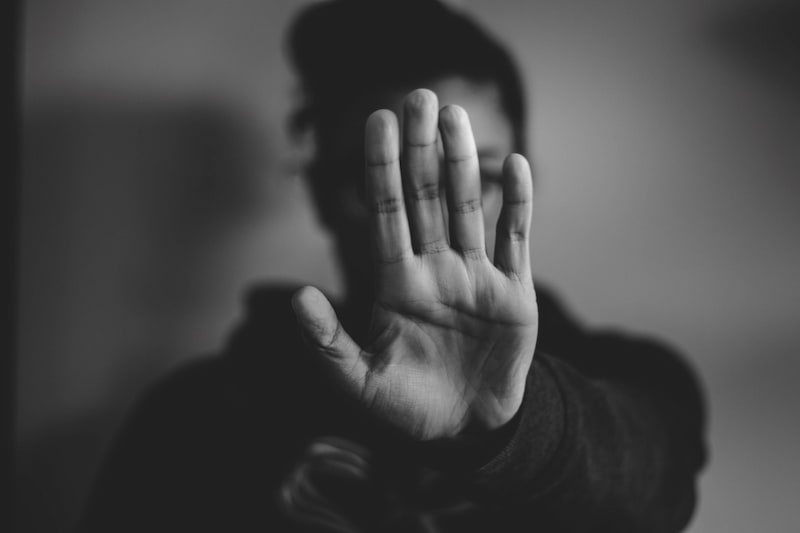
Lurking underneath the surface of people-pleasing behavior is the belief that we “have no right” to set boundaries. It’s time to challenge this ingrained assumption.
Why are others allowed to have boundaries and not you? Why must you feel like a lesser human being and elevate others above yourself?
It is a fundamental right of all human beings to have personal boundaries. Consider it your birthright to establish boundaries that define and protect you. Not only is it your right to create boundaries, but it is also your responsibility.
2. Understand that your thoughts, feelings, and needs are equally important to others

No one’s thoughts, feelings, or needs are “above” anyone else’s. Social status is an illusion created by the human mind.
In other words, the Queen of England’s needs are equal to a homeless person’s needs. The only division created between us and others exists in the mind. Therefore, you are not “less important,” valuable, or worthy than others. Your needs are equally important to those in your life.
Learn to see yourself as equal to others. Affirm your worth each and every day with a mantra such as “I am worthy and my needs are important.” Learn to disagree with those who try to make you think or feel otherwise.
3. Explore your needs
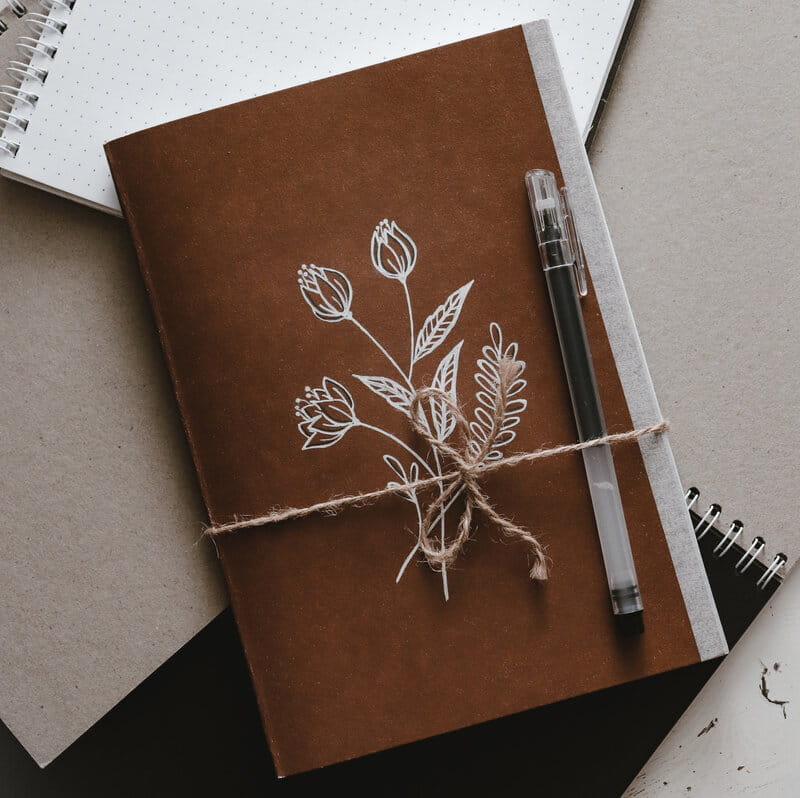
Chances are that you don’t have much experience or knowledge of your true needs, especially if you ignore them to cater to others’ demands. Now is the time to start learning more about yourself.
Keep a daily journal in which you record your thoughts, feelings, needs, and desires. Practicing self-reflection and introspection will help you to become more in tune with what you really need at any given moment. (Here are some journaling ideas.)
Practicing a few simple mindfulness exercises is another powerful way to know what boundaries you need to set during the day.
Dedicate yourself to tuning into and learning more about who you are and what you really want out of life. This is one of the best ways to begin setting personal boundaries.
A fun way to start learning about who you are is by taking self-discovery tests (take a look at our many insightful tests!).
4. Practice daily self-care (because you’re worth it!)

Practicing daily self-care is a supplementary practice that will bolster your ability to set clear personal boundaries.
When you get into the habit of nurturing yourself, you’re already setting yourself up for success. You’re sending yourself the message that “I’m worth taking care of.” Setting firm boundaries will then seem like the next natural step in your self-care routine.
Simple ways to perform self-care include taking time to relax, practicing meditation, making delicious and nutritious food for yourself, exercising, setting daily goals, complimenting yourself, rewarding yourself, taking a nap, connecting with nature, drinking a soothing cup of tea, and many other practices.
Check out this article on self-love for more suggestions.
5. Learn to say “no”
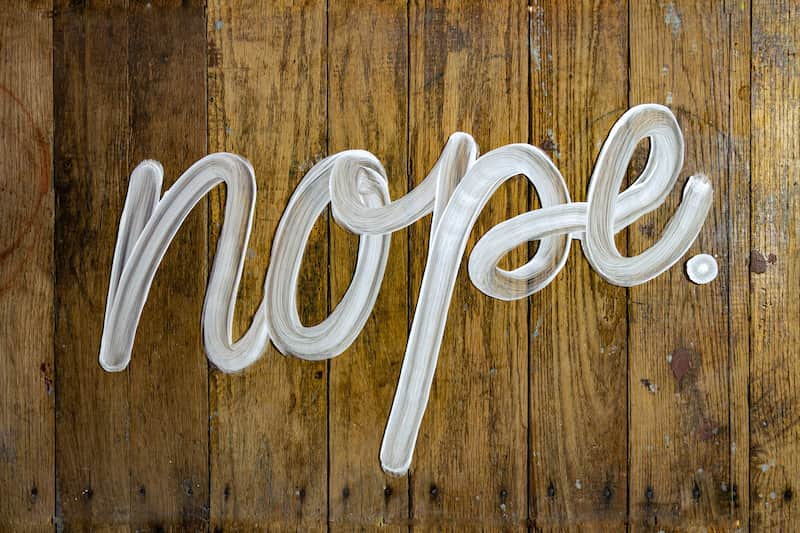
Saying no is a key part of learning to be assertive and honoring your needs. You don’t need to flat out or aggressively say “no” if the situation doesn’t call for it.

Shadow Work Journal:
⭐️⭐️⭐️⭐️⭐
"Wow! Wow! Wow! I’ve bought three books of yours so far and they’re high-quality works - and helped me so much. But the Shadow Work Journal is truly something! Right from the first exercise, a core wound of mine (deeply buried inside my shadow) was effortlessly revealed to me! Your instructions helped me go layer by layer to uncover that wound underneath my unhealthy pattern." – Maha
Uncover Your Core Wounds!
Instead, you can try saying phrases such as “No thank you,” “I can’t,” “I’m not able to,” “Not now,” “I’m busy, sorry,” “Maybe next time,” “I appreciate the offer, but I’m unable to,” and so forth.
Experiment with different ways of saying no and see what feels most resonant with your personality.
6. Identify when people cross the line (aka., “difficult people”)

It’s not always easy to identify when others overstep your boundaries, particularly if you’re used to not having any. However, there are some types of people (let’s call them “difficult people”) who quite blatantly cross the line.
Take time to record in a private journal each day all of the moments when you felt uncomfortable, upset, or disrespected by someone during the day. This journaling exercise will help you to develop more self-awareness.
Another way to know when people have overstepped your boundaries is by tuning into your body. Try to notice when you feel sensations like butterflies in your stomach, tension in your shoulders, or an increase in blood pressure, which will manifest as feeling flustered and hot.
Use these sensations as triggers to help you tune into the present moment and practice boundary setting.
To set boundaries with difficult people such as narcissistic, histrionic, and other egomaniac types:
- Create a list (on your phone, in your journal, etc.) of ways to say “no” that don’t stir up drama and preserve your energy (see the previous point on this list)
- Try to create as much physical, mental, and emotional distance from them as possible whenever you can
- Don’t get invested in their chaos – remember that they are responsible for themselves and their own well-being
- If you’re stuck dealing with such a person, try the “grey rock” method of self-protection where you become as bland and neutral as possible so as to stay grounded and calm
7. Stop overcommitting
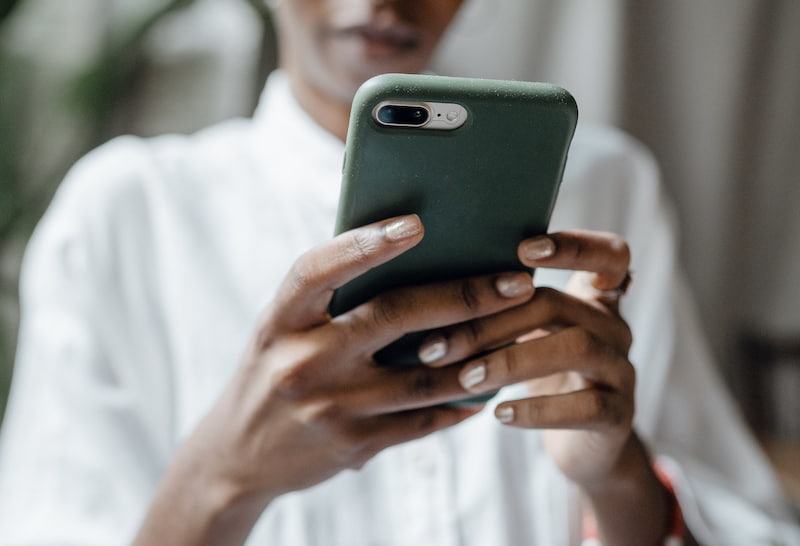
You’re not obliged or indebted to uphold every single social commitment that you have. Don’t try to please others at your own expense. Committing too much to other people and circumstances creates stress and burnout.
Learning to say no to non-essential things like work get-togethers, parties, and other social duties that are not life-or-death takes practice.
So be gentle with yourself, remind yourself why you’re on this journey in the first place, and graciously decline whatever “fills your cup” too much. At the very least, others will appreciate your honesty.
8. Be courageous: let go of toxic friendships and relationships

It takes a certain level of courage to stick to your personal boundaries. Fake friends and flimsy relationships will inevitably self-destruct and fizzle away during this process. As a result, you might be left with feelings of guilt, shame, or feel like you’re doing something wrong.
It’s vital in these tough times to keep affirming that setting personal boundaries is your fundamental human right. You are WORTH it.
Those who try to control, use, or abuse you will likely try to stop you – but don’t let them hold you back. Step away from those people who are polluting your life and seek out new friendships that are supportive and uplifting.
9. Seek help (but not from friends or family)

If you still need help setting strong personal boundaries, chances are that those around you probably reinforce codependent behavior. So it’s not a wise idea to seek advice from them, however well-intentioned they may be.
If you need more in-depth advice and personal assistance, I recommend either reading a book such as Boundaries: When to Say Yes, How to Say No by Henry Cloud and John Townsend, or seeking the help of a therapist (or both).
I also recommend checking out the Sacred Boundaries Journal I’ve created to help you set clear, empowered personal boundaries.
If you’re a sensitive soul who doesn’t know how to say ‘no’ effectively, this journal can help you tune into your inner needs, access increased energy, and find more balance and self-sovereignty in life.
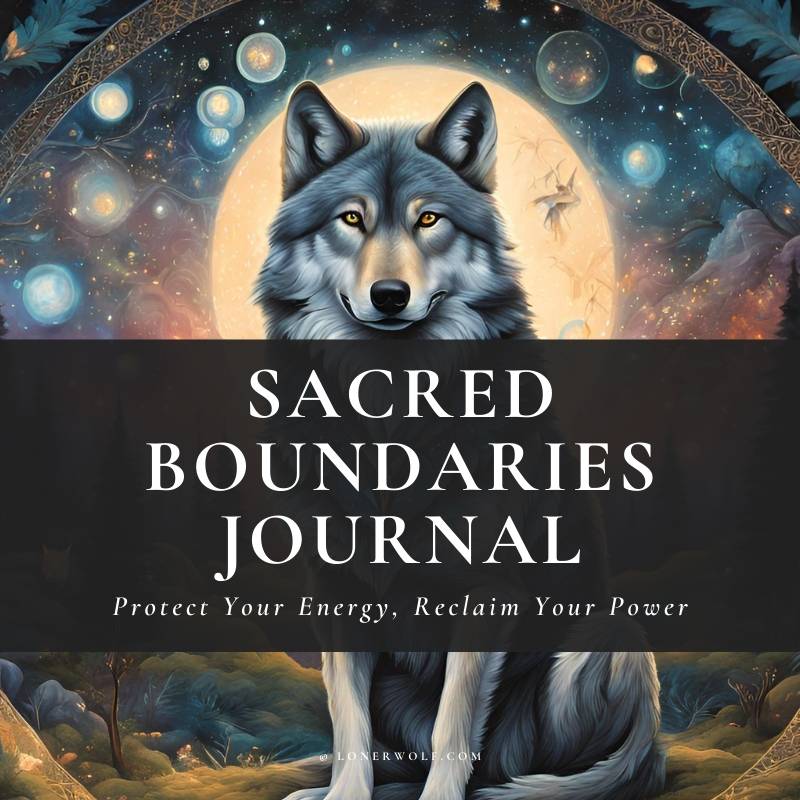
It features:
- 100% editable & printable format
- 30+ journaling prompts exploring the physical, mental, emotional, and spiritual dimensions of setting boundaries
- Lush images with quotes
- Healing mantras
- Oracle/tarot card spreads
- Book recommendations
You can download it as a bonus in our yearly LonerWolf Supporter Membership tier, where you get this journal plus a whole month of intuitive guidance and personal spiritual support.
This journal was a joy to create, and may it serve you well!
Final Words
To end, I want to remind you to be mindful of approaching this journey with gentleness and self-compassion.
You weren’t responsible for developing poor boundaries (it was how you were conditioned). However, you are responsible for now changing them and owning your personal power. I hope this article has given you some helpful pointers to help you do that.
Tell me, what experiences have you had with people overstepping your boundaries? And what advice can you give to others in your situation? I’d love to hear from you in the comments!
If you need more help, we offer 2 powerful ways to guide you on your inner journey:
1. The Soul Work Compass Course: Break free from feeling lost and disconnected. The Soul Work Compass is a practical 12-step course that transforms soul loss into soul clarity. Discover your core values, heal core wounds, and create a personalized compass to guide every decision you make.
2. The Inner Work Journal Bundle: Heal at the root. This Inner Work Journal Bundle guides you through self-love, inner child healing, and shadow integration with 150+ prompts and activities. You get editable digital files to use on any device or print unlimited times. Not for lukewarm seekers, these journals are for those ready to transform.
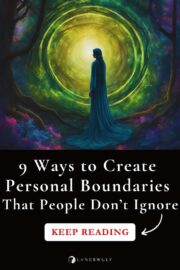
 $3
$3
I relate 100% to the ways this article listed that adults taught me, when I was a child, that I was not allowed to have boundaries. Have been working on this for years now, and although I feel I have come a long way, this article was a thoughtful and kind reminder to keep progressing and un-learning. Thank you Aletheia.
Thanks for sharing that, KC. :)
Wonderful article about setting healthy boundaries. At 68, and with a life full of drama, I’ve learned to walk away from the actions of people who’ve denied me boundaries. In fact, although I’m social at the limited events that I attend, I choose more often than not to be by myself. I’ve clearly sent the message to family and friends that if complete honesty and kindness aren’t part of EVERY interaction with me – I will walk away and just do me. I’ve been standing by this ‘new me’ for about a year and a half. Recently, some have heard me and are observing my boundaries. One told me that “I’ve been so sweet lately.” I laughed and said that “I’m always sweet to those who are kind to me.”
Your site, books, journal prompts and articles have helped to bring me to a place spiritually where I’ve always seen my true self. One of the responses I used when walking away was, “I’m sorry. Being in relationship with you brings out the worst version of who I am. I don’t want to be that person anymore.” I am finally living my genuine self and I’m thankful.
This week I heard the best definition of boundaries: “A boundary is what I need to be able to love someone.” For some toxic folks that might be never seeing or hearing from them again, but for most there is some level of protection that I feel safe behind.
I LOVE that definition, Bill! Wow. Thank you for sharing!
So, what if this person the VP of the company, the manager of my direct manager?
Our work has to be planned, no problem I am a planner. We have a certain amount of work that needs to be done before all results will be send to payment administration.
Many times she comes with ideas that have to be implemented directly, even better yesterday. Which she was thinking about for weeks and than… A few days before our deadline she plans meetings everyday, the whole day. Meaning we can not finish our job. Steps over our working time. Hardly, or not, planning breaks. 9 hours in a row.
I declined all the meetings, I simply am not able to do this in the last week from our monthly deadline.
I already worked from home 100% for several reasons. Now she ordered us to come to the company and go to all the meetings… Not being able to finish our work.
My boundaries were clear, very clear. My other 2 colleagues do what she asked, they still are on probation time. Our direct manager is on vacation… The job is great, yet she is the VP.
I am probably out of work tomorrow or Tuesday. Well, it’ll be so. I am not going to do what she want.
No tips from my side. I wish I had…
Hi Karin,
I’m not sure about the whole context of the situation, but I do know that all workers have certain rights. You have the right to have the space to do your work, and if these meetings are getting in the way, I’d personally try to find a way to speak privately with the VP about this, using the principles of something called “nonviolent communication” (if you haven’t heard of it or don’t know how to approach conversations in this way, look it up). Whatever the case, if you feel like it doesn’t suit you, then stay true to yourself! Very best wishes
I never write comments, but felt the urge to do so here: I value the gentle, but firm way this article communicates to the reader; I found comfort in it when reading about a topic I personally feel alien with. It had useful advice, and reminders, as well as perfectly asked questions to reflect about oneself, without becoming overwhelming. Thank you for this!
Thank you for sharing that Nik! ♡
Thank you for sharing this article! It was exactly what I needed to read today. I recently had to create some boundaries with people in my life. I was doing a health and fitness challenge and made a couple friends from it. We texted each other every day during this challenge to hold each other accountable and provide support. It eventually turned into a friendship, but the daily in-depth conversations started to take a toll on me, especially as work got busier and my daily life responsibilities started to shift. I communicated I needed boundaries and the one I needed most was to be on my phone less and be present more. Both friends understood, but it caused more than one fight because I wasn’t texting enough or asking more questions about their day as much as I used to. So I guess they didn’t understand. One of the friends went as far to say I was a horrible person to them because of it and I made them feel unloved, unwanted, and unsupported. I feel the part in your article, “Having personal boundaries will cause my relationships to suffer”, was especially true in my situation. Those who make me feel selfish or horrible for enforcing healthy boundaries are usually the ones who took advantage of my time and energy the most. As sad as it is, it’s for the best because aside from that situation, enforcing boundaries has made me happier and allows me to do more acts of self-love.
What is the difference between setting boundaries to yourself and setting boundaries for others? Is there a difference? And if one is closely related to someone else, does telling them to never bring up personal or “intimate” matters that you share with them? Do personal boundaries have a boundary? A line, which once crossed, will project one’s incapacity to maintain a mature relationship with that person?
Thanks for raising some valid questions Liona.
I’m not quite sure what you mean by setting boundaries with yourself. You can have guiding rules/principles/values that you decide to follow like ‘not stealing’ but I’m not sure how you could have a boundary with yourself.
With other people is where boundaries usually function. You have the right to share what your needs are, what you’re comfortable with talking about, etc. Depending on how close the connection is, you may need to explain that it makes you uncomfortable for example.
There are no boundaries to boundaries. But if you find yourself having to create a lot of boundaries with someone, it’s naturally going to affect the connection with them, and then you’d want to question why you feel the need for some many boundaries with them and whether you’d like to spend so much time around that person depending.
hey :) thanks for all your articles,they are Soo deep and inspiring. Boundaries are Soo important in life,I wish someone told me how to do it when I was young and naive and unfortunately..a cute girl. Modeling for work I met Soo many older man who crossed my boundaries and I just wasn’t able to say anything. I was lucky that at the end nobody really abused me but I had Soo many horrible experiences when I was under 18 where photographers would end up touching me improperly with many excuses on the set.. since I was young my boundaries have been crossed Soo many times,from my teacher caressing my legs at school to the one doing the same with my hands while sitting on my side in the car (I was learning how to drive at the driving school). I am here to speak loud to all those girls who find themselves being abused by man.It’s not ok to pretend that nothing happens.You need to say No to those behaviour,they are not normal and not acceptable.Nobody should never touch you without your permission! and If are not strong enough to say No please don’t feel shame and ask for help and support !! It’s not your fault if disgusting man are attracted to you. You deserve respect . peace
Thank you mystic, I hope many women listen to your advice and speak up. We’re seeing a lot of changes already coming collectively from this collectively from the #MeToo movement, I hope it continues strong.
I also had the same issues. I always tried the soft approach and tried to just be kind to men who crossed boundaries. I didn’t give in, but I made excuses for them or tried to just get away. I wish now that I had given them an earful! They seem to know who lacks strength to harshly call them on their attempts to take liberties.
I one year back experienced this thing of my personal boundaries getting attacked by my not so close in laws..I absolutely in flow expressed all my bad experiences and started showing victim mindset..where all in my past I was the one who was the culprit..I never listened what my family always wanted me to do..like they always told me to first focus on career.staying with my aunt..I even blamed her as an immature person over a guy..i already have a family where mom is the only breadwinner..instead of helping her I always was after the guy and became codependent on him..I m married to that guy and now his family knows about all things of my past..even they know I get upset even when someone shouts on me for small reasons..and aunt did the same thing..she was protecting me but I couldn’t understand.she just wanted me to study well so that I could fill my mom’s needs and help her..but sadly having a victim mindset..is worse then being a culprit..now I feel very depressed..I even lied to my fiancees family about my family not loving me but actually it wasn’t that they didn’t love me but the problem was in me..I was not taking responsibility for my act.bunkinv college when I was sent here to study..it feels so weird..I couldn’t understand my loved ones what they actually wanted for me..and now after even having no personal boundaries I feel guilty why I opened myself up in fiancees family.when the truth comes out..my self respect will be at stake and it will eventually hurt my fiancee and our relationship
Hello, I’m sorry to hear about your situation. It’s ok if you made mistakes or if things didn’t go well, please don’t be so hard on yourself. It’s not too late! Sending you all the best wishes
This is a brillant and helpful article- thank you. It took a lot for me to uncover I actually had a ‘state’ of guilt about making other people happy, and not being happy myself. It has only been by taking myself away from other people and really getting to listen to myself with love and compassion have I started to enjoy being me just who I am. I play music most days, dance and just let myself go. Learning to be responsible for my own wellbeing first at the age of 61 – it is never too late
This is so beautiful and inspiring, THANK YOU Joyce! ♡
Can’t say no? Its so simple yet to so subtle, its weird how I never noticed it within me as well as other listed signs, I can finally see it, I was in a toxic friendship for 7 years, when it broke, I kept punishing and blaming myself, after losing track of time and my own self, i’ve finally stepped out of that grief stricken darkness and can see the reality(though I still struggle, asking for a friend, an empath if possible?) :)
I’m glad you’ve stepped out of the darkness, Tuba, being in a toxic friendship for 7 years sounded extremely challenging. I hope you’re feeling more empowered at saying ‘no’ now. Researching different ways of saying no (there are many!) may help. ♡
I have struggled with many of the signs listed above. This has to be one of the best, most comprehensive articles on how to create strong, helpful boundaries and live a life of personal sovereignty and freedom.
Thank you for this, gift my friend. I look forward to applying what I learn. This website truly is a blessing and I feel it will help greatly in my journey of self transformation.
Thank you Michael! Much love ❤